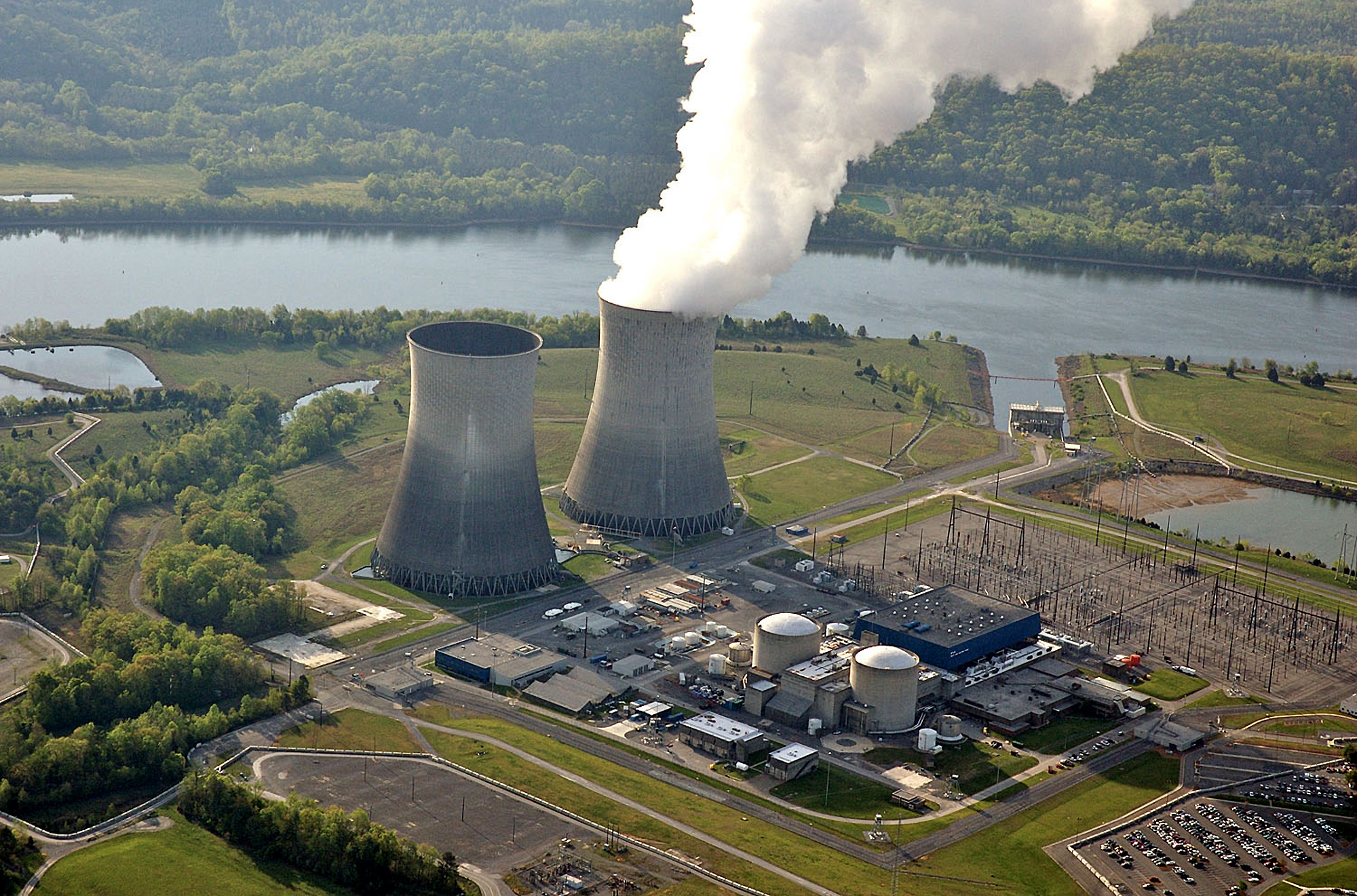Watts Bar staff swells to 5,000 as nuclear power backers say more reactors help jobs
Saturday, March 29, 2014
The Watts Bar Nuclear Plant has turned into one of East Tennessee's biggest employers with 5,000 TVA and contractor employees working around the clock to build a new reactor and refuel another.
"These workers are eating in our restaurants, shopping in our stores and staying at area hotels and campgrounds and that is putting a lot of needed money into our economy," said Rhea County Mayor George Thacker, who built the 42-room Howard Johnson hotel in Spring City seven years ago to help house Watts Bar workers. "Watts Bar is a great asset for our region."
Although more than 4,000 of the workers at Watts Bar are employed in short-term construction, maintenance and refueling activities, backers of nuclear power said Friday that new nuclear plants like the one taking shape at Watts Bar are key to America's economic and energy future.
The Unit 2 reactor at Watts Bar, which is scheduled to begin power generation in late 2015, will be the first new reactor added to America's electricity grid in nearly three decades.
The $4.5 billion project this week attracted the co-chair of a new group formed to push more nuclear power, known as the Clean and Safe Enegy (CASEnergy) coalition. The group is headed by former EPA Administrator Christine Todd Whitman, a Republican, and former U.S. Trade Ambassador Ron Kirk, a Democrat.
Kirk, who also is a former mayor of Dallas, visited Watts Bar this week and said Friday he was impressed by the size of the workforce and the workers commitment to safety.
"I spend most of my time highlighting the clean air advantages and reliability of nuclear power, but as a former mayor who worked a lot of economic development I was struck by seeing 5,000 workers at that plant," Kirk said. "Watts Bar is the real economic lifeblood of that community. They've had more than 23 million work hours without an accident, which really shows the professionalism of those workers and their commitment to safety."
Nuclear power critics, however, cautioned against focusing on temporary jobs building nuclear plants that could leave a costly legacy of nuclear wastes and utility debt.
"There's more than providing jobs in the here and now," said Garry Morgan, an anti-nuclear activist for BEST (Bellefonte Efficiency and Sustainability Team). "In the long term, we have no solution for the storage of the radioactive wastes from these plants and ratepayers eventually have to pay the enormous expense of these facilities. There are far more jobs at much less cost from energy conservation and efficiency."
But Kirk said he wants to see other communities follow the example at Watts Bar, although he acknowledged that nuclear power still faces a lot of head winds from public concerns about nuclear waste, competition from cheaper natural gas and uncertainties about financing major capital investments.
Watts Bar was originally scheduled to be completed and generating power in the 1980s, but changing power forecasts, nuclear regulations and whistleblower concerns delayed completion of the Unit 1 reactor at Watts Bar until 1996. A 5-year, $2.5 billion plan to finish Watts Bar Unit 2 approved by the TVA board in 2009 is now expected to cost about $2 billion more than than original forecast and take a couple of years longer than first predicted.
Such cost overruns and delays have made nuclear power less competitive with natural gas generation, which has come down in costs as new fracking technologies open up more gas supplies.
But Kirk said the turmoil in Ukraine and Eastern Europe has renewed calls for the U.S. to export natural gas to Europe to replace Russian supplies. The former Obama administration cabinet officer also said a growing number of environmentalists are seeing the climate and air quality advantages of nuclear power over fossil fuel power generation.
"Investment in clean electricity sources like nuclear energy is vital to spurring innovation, curbing climate change and putting Americans to work in long-term, high-paying careers that can't be shipped overseas," Kirk said.
Contact Dave Flessner at dflessner@timesfreepress.com or at 757-6340

